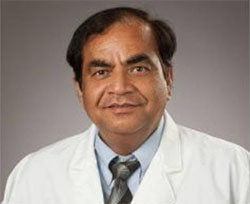Garrison Institute on Aging teams with mayor’s office to promote health

The latest statistics from the Alzheimer’s Society point to the severe reality of Alzheimer’s disease. Alzheimer’s disease affects more than 46.8 million people worldwide, including 5.4 million people in the United States. Currently, there is no cure for this progressive neurodegenerative disease. The annual health care cost worldwide for people with Alzheimer’s disease is estimated at $818 billion.
A relatively small number of young adults develop what is called early-onset Alzheimer’s disease, which is caused by genetic mutations, but causal factors are still unknown for the vast majority of older patients who develop late-onset Alzheimer’s disease. Persons with late-onset Alzheimer’s disease have typically been diagnosed with diabetes, obesity, traumatic brain injury or an unhealthy diet before developing Alzheimer’s disease. Researchers around the world, including scientists at the Garrison Institute on Aging, note that lifestyle significantly affects the onset and progression of the disease, and that Alzheimer’s disease may be preventable — or it may be possible to delay its onset — with regular exercise and a healthy diet.
In Alzheimer’s disease, dementia typically progresses from mild, to moderate, to severe. Alzheimer’s disease patients — both early-onset and late-onset patients — eventually exhibit dementia, a term that encompasses symptoms affecting memory and thinking abilities and social inabilities that interfere with daily activities of living. In postmortem studies of brains from persons with and without the disease, researchers are identifying abnormalities in the Alzheimer’s disease brain, including the loss of synapses in nerve cells and brain tissue. In other words, the Alzheimer’s disease brain progressively shrinks, especially in the hippocampus, a brain region that is involved in long-term memory and the formation of new memories. Researchers from the Garrison institute are finding that abnormalities in Alzheimer’s disease brain cells involve reductions in energy output from mitochondria and generate adenosine triphosphate, a source of chemical energy for brain functions, such as storage of long-term memories. Garrison institute researchers are actively working to improve energy levels in brain cells by delivering mitochondria-targeted molecules to the brain.
The Garrison institute’s overall mission is to improve the quality of life in older persons through innovative and cutting edge research and the promotion of regular exercise and healthy diets. Consistent with this mission, scientists and health care professionals are investigating the impact of lifestyle and diet on mitochondria in brain cells from persons with and without Alzheimer’s disease, in order to identify how late-onset Alzheimer’s disease can be prevented or delayed, and how Alzheimer’s disease progression can be slowed. Scientists and health care professionals are involved in different approaches to achieve its mission of educating the community about how lifestyle decisions such as exercise and a healthy diet can affect Alzheimer’s disease onset and progression, how other conditions, such as diabetes and obesity, can impact Alzheimer’s disease onset, researching the identification of biomarkers designed to detect Alzheimer’s disease as early as possible in elderly individuals and researching drugs capable of targeting and delivering treatment to Alzheimer’s disease-affected.
The Garrison Institute on Aging is partnering with the Lubbock mayor’s office to support the Mayor’s Fitness Council, the mission of which is to create a healthier Lubbock by showcasing events that promote healthy lifestyles and diets. November is designated Alzheimer’s Disease Awareness Month, a perfect time to remind the community of the importance of improving exercise and diet.
While the Garrison institute scientists and health care professionals continue their valuable research, take opportunities to participate in the Mayor’s Fitness Council, educational programs and activities to stay healthy.
P. Hemachandra Reddy, Ph.D., is the executive director and chief scientific officer of Texas Tech Health Sciences Center Garrison Institute on Aging.
Related Stories
Celebrating Veterans: TTUHSC’s General Martin Clay’s Legacy of Service and Leadership
From his initial enlistment in the Army National Guard 36 years ago to his leadership in military and civilian health care management roles, Major General Martin Clay’s career has been shaped by adaptability, mission focus and service to others.
Texas Tech University Health Sciences Center School of Nursing Named Best Accelerated Bachelor of Science in Nursing Program in Texas
The TTUHSC School of Nursing Accelerated Bachelor of Science in Nursing (BSN) program has been ranked the No. 1 accelerated nursing program in Texas by RegisteredNursing.org.
TTUHSC Names New Regional Dean for the School of Nursing
Louise Rice, DNP, RN, has been named regional dean of the TTUHSC School of Nursing on the Amarillo campus.
Recent Stories
The John Wayne Cancer Foundation Surgical Oncology Fellowship Program at Texas Tech University Health Sciences Center Announced
TTUHSC is collaborating with the John Wayne Cancer Foundation and has established the Big Cure Endowment, which supports the university’s efforts to reduce cancer incidence and increase survivability of people in rural and underserved areas.
TTUHSC Receives $1 Million Gift from Amarillo National Bank to Expand and Enhance Pediatric Care in the Panhandle
TTUHSC School of Medicine leaders accepted a $1 million philanthropic gift from Amarillo National Bank on Tuesday (Feb. 10), marking a transformational investment in pediatric care for the Texas Panhandle.
Texas Tech University Health Sciences Center Permian Basin Announces Pediatric Residency Program Gift
TTUHSC Permian Basin, along with the Permian Strategic Partnership and the Scharbauer Foundation, Feb. 5 announced a gift that will fund a new pediatric residency.
